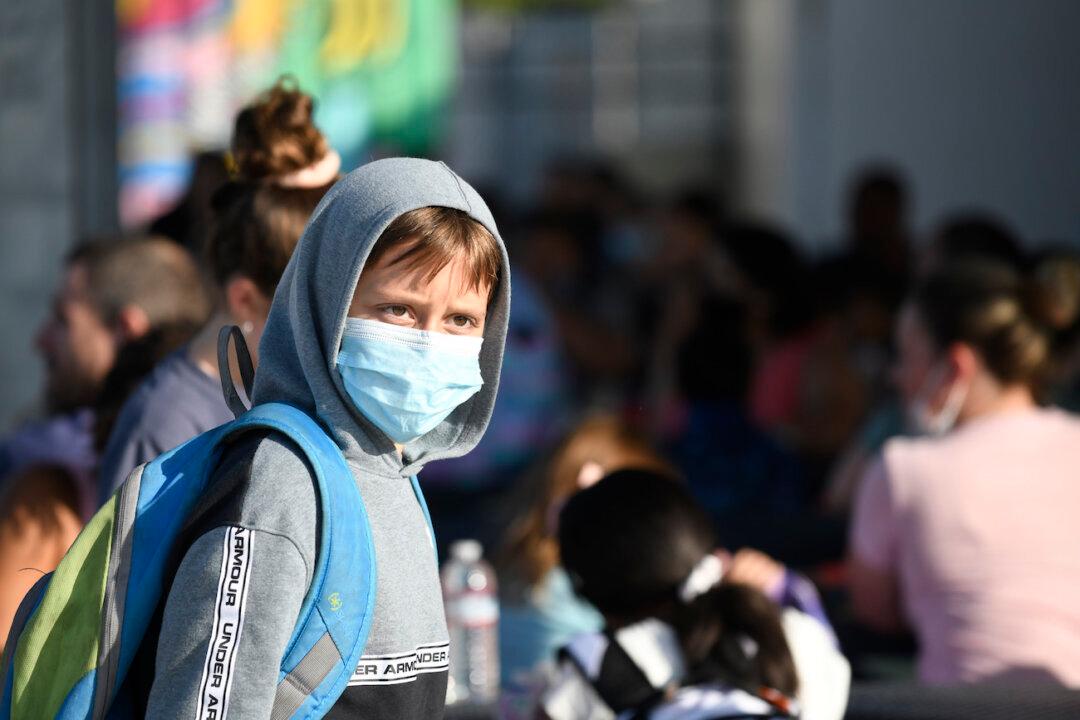National Institutes of Health (NIH) director Francis Collins on Tuesday indicated that the push to make America’s youngest students wear masks at school is more due to concerns over potential school closures, rather than based on data of COVID-19’s impact on children’s health.
Collins weighed in on the debate over mask requirements in American schools during an interview with “The Hugh Hewitt Show.” When asked by host Hugh Hewitt about recent federal recommendations that children in kindergarten through 3rd grade should wear masks, Collins said that although young children getting COVID-19 is rare, unmasked students could cause COVID-19 outbreaks at schools, forcing their peers to return to remote learning.





